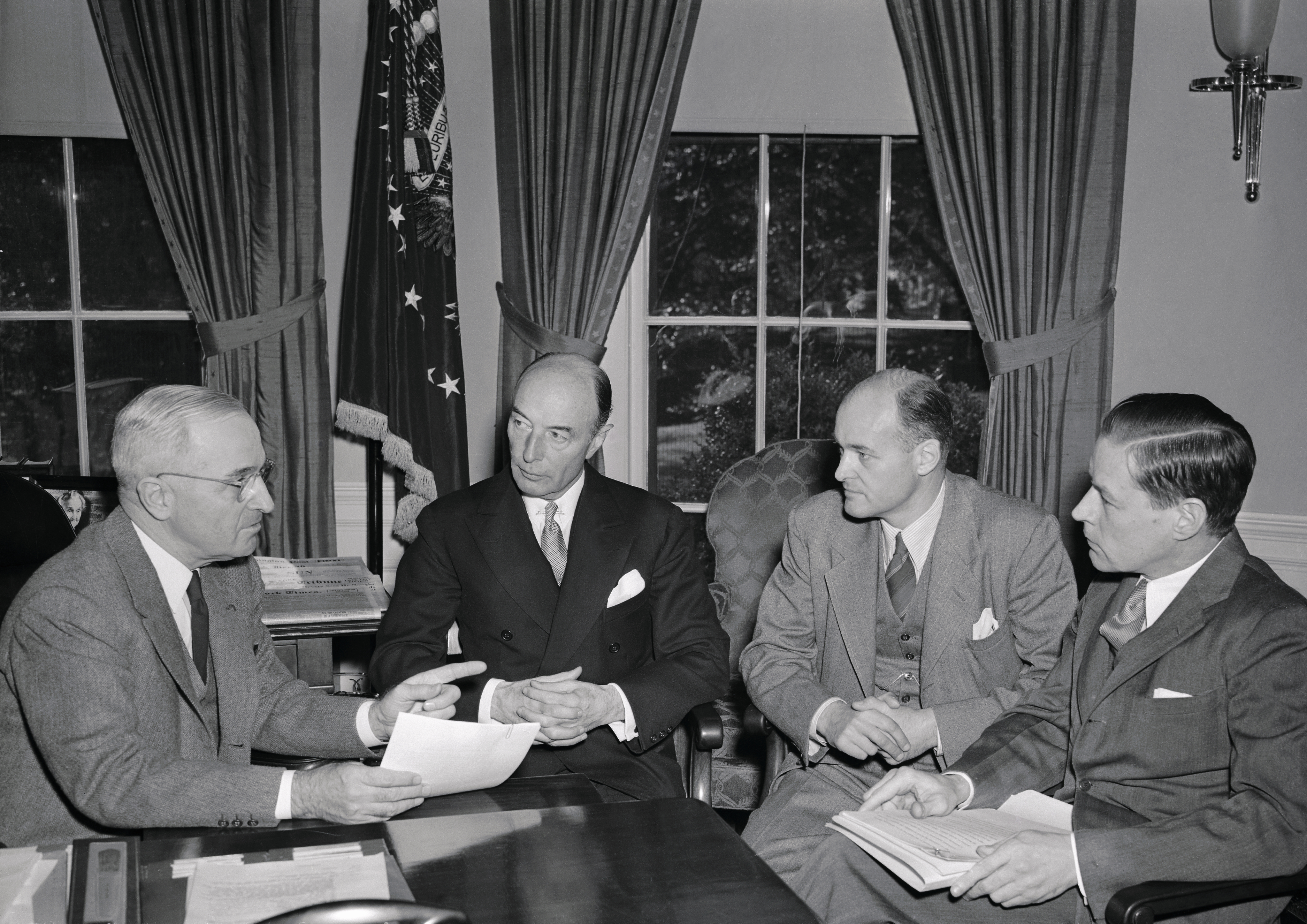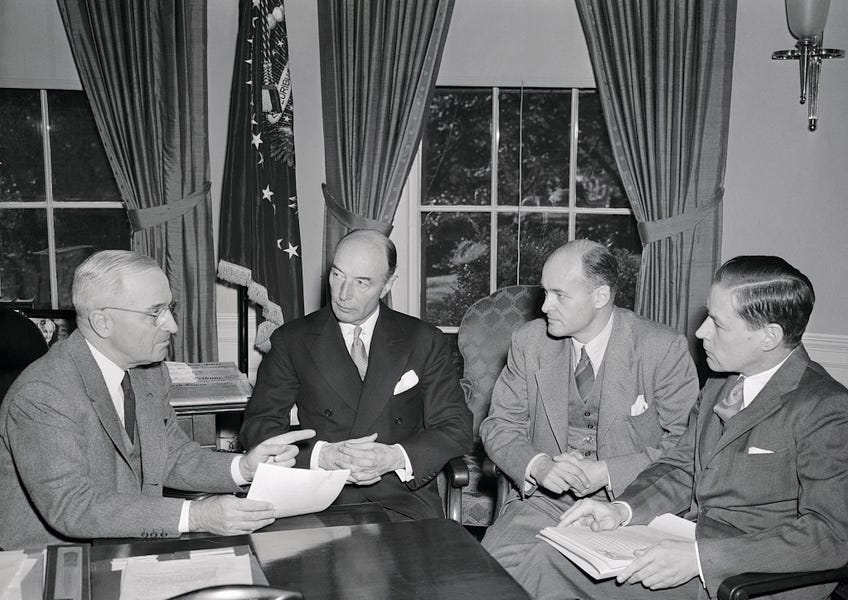Hello future contact-tracing data points,
Elsewhere at The Dispatch, I offer some speculation that the most foreseeable way we get a “new New Deal” is by accident. But first let me pick up where I left off.
For those who want the TL;DR—“too long, didn’t read”—summary: I think if we open the economy too soon and COVID-19 comes back with a vengeance, requiring yet another economic shutdown, but even rougher and deeper, President Trump will lose by historic margins. Politically, Trump is not to blame for the pandemic. But if he were to take complete ownership of the all-clear and back-to-work signals, he would own what happened next. Again, if that went horribly, it’d be hard to see how Democrats wouldn’t win by massive margins. They would do to him what Democrats did to Herbert Hoover, blaming him for not doing enough and for being indifferent to mass suffering. (Before you get your MAGA knickers in a twist, the whole point of the Hoover comparison is that the Hoover myth isn’t true.)
If they were elected in a landslide, it’s easy to imagine Democrats pursuing a new New Deal, precisely because that has been their go-to policy agenda since, uh, the New Deal.
When I say this is the most foreseeable way we get a new New Deal, I don’t necessarily mean it is the most likely. It’s just that this is the one path where I can imagine it actually coming to pass.
What to do?
Okay, with that out of the way, I’ve been noodling with the idea of what the best conservative response would look like. My personal preference would be to get into a big fight about the myths and exaggerations about the New Deal. I spent about a decade fighting those fights and I enjoy them. Hint: Some New Deal-era policies were good; others made things worse.
But I don’t think just saying “no” is an option here. It’s analogous to the fight over health care. The GOP is really good—or at least used to be—at attacking socialized medicine. It’s been less successful at offering and unifying around an alternative, which means that, in the political realm, it often ends up defending a quite craptacular status quo.
Moreover, we’re already pot-committed to spending trillions of dollars responding to this—and rightly so* (there’s no footnote here, I just have the asterisk to denote that I reserve the right to point out mistakes we will undoubtedly make along the way). But agreeing that the government must marshal extraordinary resources during an extraordinary time doesn’t require conceding to the inevitable “It’s time for a new New Deal” ballyhoo.
A New Marshall Plan

The best historical analogy—far from perfect, I readily concede—is the Marshall Plan. We’ve heard people call for a domestic Marshall Plan for decades. Hubert Humphrey proposed a “Marshall Plan for the Cities” in 1976. The problem with most of these proposals was that they were really just calling for a bunch of New Dealish stuff under a different label.
The actual Marshall Plan was very different than the New Deal—and those differences create real challenges. The Marshall plan was the effort, led by the United States, to rebuild war-torn Europe. Because they were the bad guys, the Soviets refused to participate (though you can understand Stalin’s reluctance to see Germany restored to economic health). The fact that it was a foreign policy effort removed some of the problems you see with spending money domestically. Raining cash on American citizens inevitably invites grasping politicians, pork, corruption, union chicanery, partisan favoritism, etc. I have little faith in either party resisting some of those urges. Winston Churchill called the Marshall Plan “the most unsordid act of history.” A domestic Marshall Plan would require a certain level of tolerance for sordidness.
It would also demand a level of statesmanship we have yet to see from President Trump. His insistence that his signature go out on relief checks is a bad sign for what would be required. The Marshall Plan was originally proposed as “The Truman Formula” —which sounds like a terrible Ludlum novel. Truman understood that this was an awful idea. He told Clark Clifford, his counsel, “Anything that is sent up to the Senate and House with my name on it will quiver a couple of times and then turn over and die.” That’s why Truman suggested it be called the Marshall Plan, after George Marshall, so it would be entirely non-political.
One of the reasons the Marshall Plan worked was that Europe already had the intellectual and legal capital to rebuild quickly. We have all of those advantages, plus some the Europeans didn’t—namely that our factories, homes, and business have not been reduced to rubble. If fighting the pandemic is analogous to a war, the enemy is using the biological equivalent of a neutron bomb.
Another reason the Marshall plan worked: It was inherently market-oriented. It actually repealed regulations and other barriers to economic reconstruction and growth. We’re already seeing the groundwork for that argument being laid. States and the federal government have been clearing away regulations that hamper mobilization to fight the pandemic. There’s no reason we can’t carry that forward.
Indeed, the last thing we need are New Deal-style reforms that serve to cartelize the economy and bar people from getting back to work quickly. The Davis-Bacon Act made it harder for people—particularly black people—to get jobs. That’s the opposite of the approach we need.
The key difference between the Marshall Plan approach and the New Deal approach is in intention. The New Dealers—and the new New Dealers even more emphatically—weren’t interested in restoring capitalism. They wanted—and want—fundamental transformation. The Green New Deal isn’t primarily about climate change (as some of its formulators have admitted), but about changing the basic nature of our society and economy. The Marshall Planners wanted to help friends get on their feet—and strengthen the anti-Soviet bloc—and then get out of the way. That’s all the difference in the world.
Many libertarians will tell you that there’s a lot of mythology around the Marshall Plan. Economic growth started to take off before the aid started to flow, they insist. I am open to many of those arguments. It’s certainly true that Europeans themselves were eager to get back to normalcy and prosperity without encouragement from the U.S. government. But, you know what? So are Americans. Moreover, there will be no political will—for understandable reasons—for the government to do nothing after the all-clear is sounded. So the question isn’t: “Should the government do something?” so much as “What should the government do?” And for all its flaws, the Marshall Plan provides a much better model than the New Deal.
You can’t beat something with nothing, so conservatives should start doing the hard work of figuring out what that something is. That’s not just a project for economists. The New Deal has served as a psychological and cultural lodestar for nearly a century now. Countering that lodestar requires an argument for a different one. My nominee is the Marshall Plan. But I’m certainly open to other suggestions.







Please note that we at The Dispatch hold ourselves, our work, and our commenters to a higher standard than other places on the internet. We welcome comments that foster genuine debate or discussion—including comments critical of us or our work—but responses that include ad hominem attacks on fellow Dispatch members or are intended to stoke fear and anger may be moderated.
With your membership, you only have the ability to comment on The Morning Dispatch articles. Consider upgrading to join the conversation everywhere.